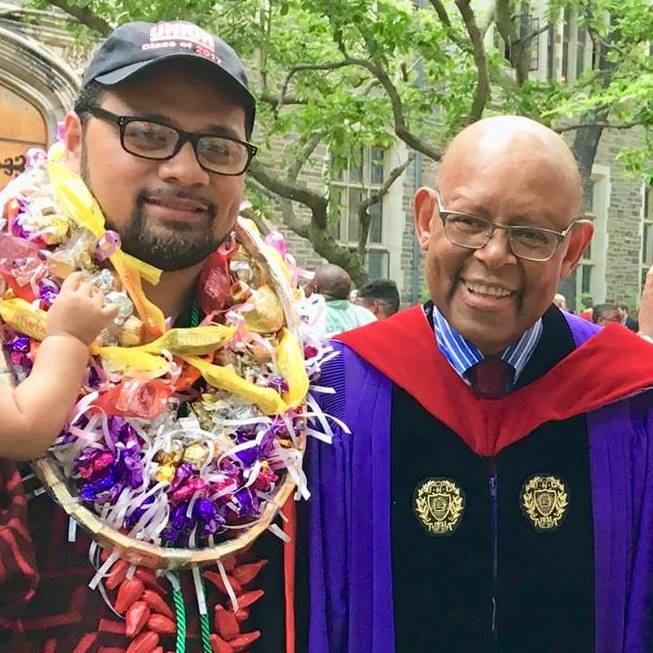
“Blackness, then, stands for all victims of oppression who realize that the survival of their humanity is bound up with liberation from whiteness.”- James Cone, "A Black Theology of Liberation"
As a college student, I was a member of a fundamentalist, cultic strain of white evangelicalism that took pride in differentiating itself from the supposed “cultural baggage of Korean and black churches”. When I started to question some of our tradition’s toxic teachings around gender, race, and sexuality — violent, colonial relics that withered much of our ethics and discipleship — I was shunned from my community in a very painful and traumatic way. For years, I felt unsure of how I could possibly be a Christian again, and I was afraid to enter faith spaces, though I still felt a need for Jesus-shaped spiritual nourishment.
Around this time, my friend Suey shared that she was starting an online book club led by radical women of color, a gathering that would serve as an organic movement space and Christian community. Our first book selected — and the first theological work I read after years of ingesting the calcified, racist theology of the Neo-Reformed movement — was James Hal Cone’s "The Cross and the Lynching Tree".
Cone’s book, poured out in our “killjoy prophets” community, broke me open and nurtured my deepest soils. Cone’s theology was life-saving for my faith. Reading his work helped me to frame “the secular” — the mass incarceration of Japanese Americans, my ethnicity and sexuality, my struggles with mental health — as crucial conversation partners for liberative faith. Cone helped me to understand the Gospel as congruent with the mass movements for the liberation of oppressed peoples on this continent and beyond. And in the depths of God’s blackness, I found my own holy shade and salvation, freed from the cheap, fluorescent rays of white supremacist theology that demanded my worship and the sacrifice of my body, cultures, ancestors and mind.
Cone taught me to immerse myself in the rich theological perspectives of liberationists, from Nathaniel Turner to Mamie Till-Mobley. His work helped me to leapfrog much of the brittle anemia of liberal/centrist/post-evangelical theology during my path out of fundamentalism. Cone is the one who taught me that there was no need to flee the lacerating strictures of conservatism only to seek sustenance from the false friends of liberalism and centrism, in all its Emergent, “Third Way”, and Dudebro Pacifist flavors.
Just before I finished undergrad, I piled into a minivan with some friends and drove several hours to hear Dr. Cone give a talk near Chicago. After his presentation, realizing I had forgotten to bring any of his books, I snatched a large, gleaming even poster from the front desk, and asked him to sign it. Dr. Cone was delighted, and very kind. He recommended some Asian liberation theology (“C.S. Song, the best there is”) for my reading. We met in flesh only that once.
The following year, Dr. Cone gave a brilliant address on the black blood crying out from the ground. At the conclusion of that talk, a white man, “concerned about unity in the body of Christ”, foisted a loaded accusation at Dr. Cone, accusing him of reverse racism and of worsening human conflict. The moderator, perhaps feeling some anxiety at seeing our dear teacher so brazenly disrespected, leapt in to chastise the questioner, and the floor was returned to Cone. As I watched the livestream, I held my breath for his response. The prophet responded very simply, with an honest note of tenderness:
“We live in different worlds. I understand what you’re saying, I really do. But we live in different worlds. I don’t know what can help you ... I’m okay, you know? I don’t have much longer on this earth. I don’t have much longer. I just thank God for the ministry. It’s my calling, my calling. Everybody has a calling ... I’ll just say we in different worlds, and I’ll leave it at that.”
No theologian has been a more important figure in developing my faith and identity. Even now, on these separate planes, these different worlds in which we find ourselves, I am praying for more faithful and fruitful encounters with Dr. Cone in the years to come. I pray, too, that more Asian Americans and Pacific Islanders will critically engage the foundational work of this beloved teacher. As the poet Joseph Brodsky observed, “darkness restores what light cannot repair”. I urge my Asian and Pacific diasporic siblings to wrestle with Cone in your churches, in your homes, in your own book clubs. Our humanity is bound up in liberation from anti-blackness, in burying ourselves not in the parched sands of whiteness, but in the deep, dark earth of Christ’s blackness.
My former homiletics professor Dr. Claudio Carvalhaes, himself a student of Cone’s, once told me that I preach “with a gentle fierceness”. This is what the flesh of Cone’s legacy is to me: a fierce, unrelenting whirlwind of tender and compassionate love — profoundly biblical, faithful, and authentic affection — detecting different worlds, coloring us towards freedom, and calling us into fuller relationship with the crucified and living God from whom all blessings flow.
This day, an ancestor is born. A saint is received. Rest in peace, and rise in power, Dr. James Hal Cone.

